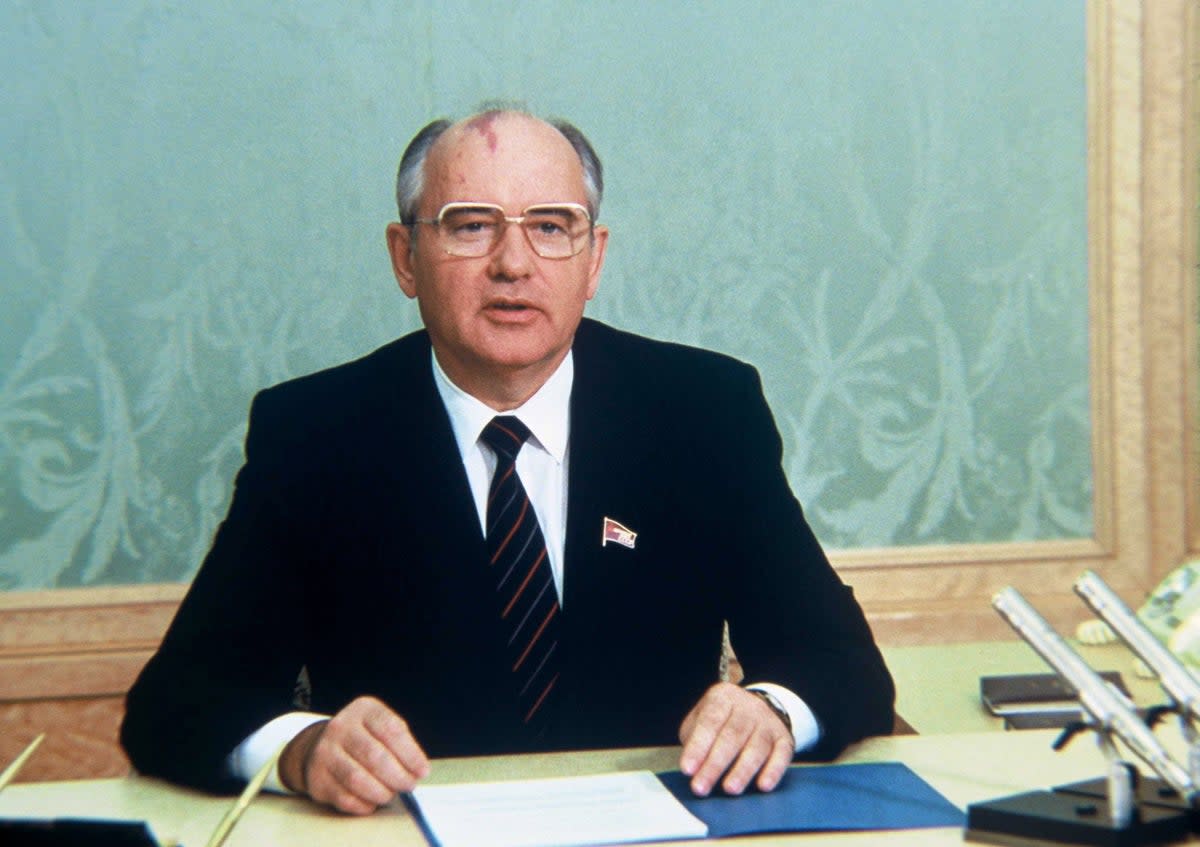Mikhail Gorbachev, the last leader of the Soviet Union, dies aged 91

- Oops!Something went wrong.Please try again later.
Mikhail Gorbachev, the former leader of the USSR who helped end the Cold War but could not prevent the collapse of the Soviet Union, has died, according to Russian media reports.
“Mikhail Sergeevich Gorbachev died this evening after a serious and long illness,” the Central Clinical Hospital in Moscow said, quoted by Russian news agencies. He was aged 91.
Mr Gorbachev, helped forged arms reduction deals with the United States and partnerships with Western powers to remove the Iron Curtain that had divided Europe since World War Two and bring about the reunification of Germany.
He was also famous for attempts at reforming the USSR, including the policies of perestoika and glasnost, and was famously described by British leader Mrs Thatcher as a “man one could do business with”, at a time when relations between Moscow and the West were all but frozen.
His reforms at home helped spawn pro-democracy protests swept across the Soviet bloc nations of communist Eastern Europe in the late 1980s. But unlike previous Soviet leaders, he refrained from using force to crush uprisings in eastern Europe, as had happened previously in Hungary in 1956 and Czechoslovakia in 1968.
But the protests fuelled aspirations for autonomy in the 15 republics of the Soviet Union, which disintegrated over the next two years in chaotic fashion.
Gorbachev struggled in vain to prevent that collapse.
On becoming general secretary of the Soviet Communist Party in 1985, aged just 54, he had set out to revitalise the system by introducing limited political and economic freedoms, but his reforms spun out of control.
His policy of ‘glasnost’ - free speech - allowed previously unthinkable criticism of the party and the state, but also emboldened nationalists who began to press for independence in the Baltic republics of Latvia, Lithuania, Estonia and elsewhere.
Many Russians never forgave Gorbachev for the turbulence that his reforms unleashed, considering the subsequent plunge in their living standards too high a price to pay for democracy.
More follows

